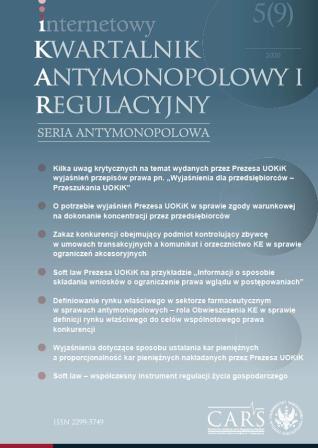Zaskarżalność aktów soft law. Podejście Trybunału Sprawiedliwości Unii Europejskiej na tle orzecznictwa wybranych państw członkowskich
Justiciability of soft law. The approach of the Court of Justice of the European Union in the light of the case law of selected Member States
Author(s): Agnieszka ChudybaSubject(s): Law on Economics, EU-Accession / EU-DEvelopment, EU-Legislation, Administrative Law
Published by: Wydawnictwo Naukowe Wydziału Zarządzania Uniwersytetu Warszawskiego
Keywords: soft law; droit souple; EU act which is not legally binding; justiciability; challengeable act; plea of illegality; legal effects; binding legal effects; recommendations; guidelines; notices; communic
Summary/Abstract: Should soft law issued by national regulators or the European Commission be subject to judicial review? On the one hand, given the non-binding nature of the soft law, the supporters of the traditional approach deny its justiciability. On the other hand, albeit non-binding, soft law may deploy significant legal effects. It not only limits the discretion of public authorities, but also impacts on the behavior of market participants. Leaving soft law outside the sphere of judicial review could amount to a violation of the right to an effective remedy. Having regard to these discrepancies, the article aims to present and compare different mechanisms of judicial review in the European Union and selected Member States.
Journal: internetowy Kwartalnik Antymonopolowy i Regulacyjny (iKAR)
- Issue Year: 9/2020
- Issue No: 5
- Page Range: 152-172
- Page Count: 21
- Language: Polish

